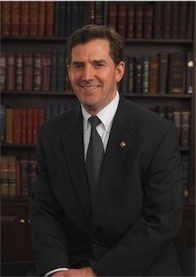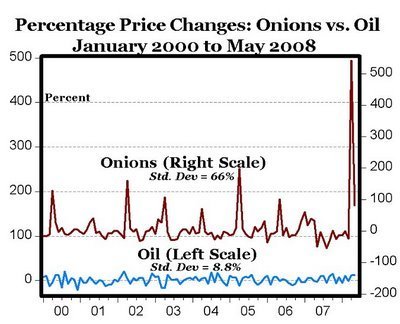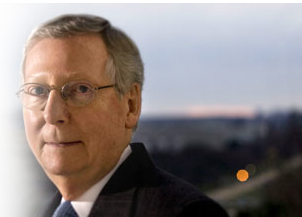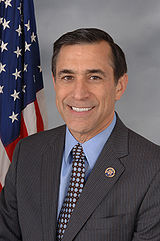Matthew Yglesias's Blog, page 2456
January 4, 2011
Selection Bias At Work

USS Wasp, an example of awesome military technology.
I wholeheartedly agree with Robert Farley that it would be a good thing, in an abstract sense, if progressives were more interested and engaged in debates about military doctrine, operational tactics, technology, etc.:
As I suggested above, we are approaching a political and economic situation in which real reductions (depending, I suppose, on how we characterize "real") to defense spending can become possible. Consequently, I think it's very important that progressives start thinking through the details of defense issues now. Non-partisan blogs like Information Dissemination and the USNI blog have commenter communities that are both well informed about defense issues and lean strongly right; there is no good reason for this situation to persist. Institutions like CAP should continue to contribute on Afghanistan and Iraq, but should also give greater attention to what US military doctrine should look like in five years, and to how progressives can and should shape overall US military capabilities. Robust, consequential progressive work on technology and doctrine will be good for progressives, and good for debates on US military capabilities.
But as they say, if wishes were horses than beggars would ride. I think it's pretty easy to understand why it is that people inclined toward nationalistic and militaristic political views are disproportionately likely to be the people interested in military doctrine and technology. And it's also easy to see why people with conservative views receive more encouragement from military officers and defense contractors than do people with progressive views.
This kind of thing is unfortunate, but it's hardly unique to defense. You have basically a mirror-image situation on education policy, where something like 90 percent of non-budgetary conservative commentary on K-12 education is either by Rick Hess or consists of Reihan Salam quoting Rick Hess. Most conservatives just content themselves with the idea that school spending is wasteful, that teacher's unions are at fault for this, and that Rick Hess has a book called Stretching the School Dollar. There's very vigorous debate ongoing about how K-12 money should be spent, but the overwhelming majority of it occurs between warring left-of-center factions since thinking about poor kids and teachers and such is the kind of thing that mainly appeals to liberals.


Postcards From The Texas Miracle

(cc photo by stuseeger)
It looks like the secret behind Texas' ability to avoid the kind of budget woes that afflicted so many states last year was two-year budgeting rather than the miracle of low-tax, low-service, lax-regulation policies:
This month the state's part-time legislature goes back into session, and the state is starting at potentially a $25 billion deficit on a two-year budget of around $95 billion. That's enormous. And there's not much fat to cut. The whole budget is basically education and healthcare spending. Cutting everything else wouldn't do the trick. And though raising this kind of money would be easy on an economy of $1.2 trillion, the new GOP mega-majority in Congress is firmly against raising any revenue.
The good news is that I think the $95 billion figure may actually be a one-year number so the picture's not quite as bleak. At any rate, keeping taxes low by simply not having taxes be high enough to pay the bills is in the best Texas conservative tradition of George W Bush but it doesn't work for state government during a recession.


DeMint: Say No to RINOs in 2011

Shane D'Aprile reports:
Sen. Jim DeMint (R-S.C.) is asking supporters of his Senate Conservatives Fund to help him build a war chest ahead of the 2012 elections, when Republicans are hopeful they can take back the majority in the Senate.
In an email sent Tuesday with the subject line "Say No to RINOs in 2011," DeMint pledged that the Senate Conservatives Fund will play a key role in the upcoming legislative battles in the Senate with an eye towards 2012.
In this context, it'll be interesting to see what happens to the re-election bids of Scott Brown, Olympia Snowe, and Richard Lugar all of whom are up for re-election in 2012 and have backed the Obama administration on a high-profile issue or two. Kay Bailey Hutchison is in some ways the Senator most vulnerable to a challenge from the right, but she may not run for re-election. There's also always the possibility of a challenge to a non-moderate like Bob Corker who voted for TARP and has, I think, at times acknowledged that carbon dioxide emissions leads to global warming. I sort of suspect that Rupert Murdoch and Rush Limbaugh are going to decide that they're not interested in backing self-destructive primaries in the 2012 cycle and suddenly all the oxygen will vanish from the DeMint/tea party space. But I could be wrong.


Speculators and Instability
MarcK asked in the requests thread about commodity speculators: "I would like to hear more about the commodities market and how banks like Goldman have been manipulating the prices. No one seems to focus on these speculators when the price of oil and even copper goes up for no good reason."
I think speculators get a bad rap and speculation is a stabilizing impact on commodity prices. The easiest illustration of this comes from the price of onions. Onion futures trading was banned in 1958 at the behest of then-congressman (later president) Gerald Ford who felt speculators were engaged in price manipulation. The result is that onions are one of the most unstable commodities out there:

In general, commodities speculation is a good thing. For any given commodity at any given time, there's always someone who wishes the price were either higher or lower and that person tends to complain about speculators. But if you constantly had to pay the spot price for everything, prices would be more unstable and ordinary households and firms would need to spend more time stockpiling goods to hedge against price fluctuations. The world of derivatives is a convenient playground for Wall Street firms interested in designing products whose purpose is regulatory arbitrage and this is a bad thing. But the problem there is with the regulatory arbitrage, not the speculation.


Repeal Cuts Medicare

Republican candidates ran against the Affordable Care Act last fall largely by alleging that it cuts Medicare benefits. Now in their first week in office, the House GOP is determined to vote to repeal it. But repeal means Medicare cuts:
The 76-year-old has schooled herself on the doughnut hole but notes that many seniors are "part of an age group that will not advertise (to loved ones) how anxious they may be feeling" about paying thousands of dollars out of pocket. But starting in 2011, seniors like Lansing can get a 50% discount on covered brand-name drugs if they are in the doughnut hole. Additional discounts on brand-name and generic drugs will be phased in to completely close the hole by 2020.
Also in 2011, Medicare will cover certain preventive services without charging you Medicare Part B (coverage for doctors' services, outpatient care, home health services) coinsurance or deductible. The Department of Health and Human Services estimates that as many as 25 percent of those on Medicare may be going without prescriptions, at some point, because of the doughnut hole's sudden out-of-pocket costs.
These are benefits that exist, starting this month. Seniors probably won't be sufficiently accustomed to them to be outraged by House Republicans trying to take them away this week. But 18 months from now, the ACA won't have been repealed, seniors will be used to the new Medicare benefits, and repealers will have gone on record as having voted to take the benefits away. Bold political votes in favor of important legislation that stands a chance of passing is a political virtue. But casting risky votes as part of what amounts to a team-building morale exercise is kind of foolish.


What Mitch McConnell Knows About American Politics And Why It's a Problem

There are many words in Josh Green's profile of Mitch McConnell and many of them are good, but these are the most important:
"We worked very hard to keep our fingerprints off of these proposals," McConnell says. "Because we thought—correctly, I think—that the only way the American people would know that a great debate was going on was if the measures were not bipartisan. When you hang the 'bipartisan' tag on something, the perception is that differences have been worked out, and there's a broad agreement that that's the way forward."
This is a shrewd insight of McConnell's and in his role as party caucus leader in the United States Senate it's wholly appropriate of him to act on his insight. What's more, it's impressive that McConnell has not only hit upon this insight but succeeded in persuading his colleagues to follow with him. Effective caucus leadership is difficult in the United States, and especially in the Senate, and I think history will record McConnell as an important parliamentary innovator.
That said, McConnell's insight is not only impressive, it's a problem for the country. The basic mechanics of his insight are clear. Most people don't pay attention to politics very much, and don't have detailed informed opinions about politics. But most people do have reasonably strong feelings about political parties and about political leaders. So most people reason about issues backwards from what elites are doing. Thus if you see Barack Obama propose something and then that something attracts bipartisan support, people generally conclude that it's good. Conversely, if you see Barack Obama propose a series of things that meet with universal GOP condemnation, people generally conclude that these proposals are partisan and extreme. Logically, then, the opposition party should uniformly oppose the President's ideas.
And there's nothing inherently wrong with a political system in which the opposition greets the agenda-setter's proposals with routine condemnation. That's how things work in Ireland and the United Kingdom and Sweden and Denmark and Japan and Germany and all kinds of other places. But the structure of American political institutions is that it's (a) generally impossible to pass major legislation without substantial bipartisan agreement and (b) generally impossible to undertake routine executive branch staffing without nearly universal bipartisan agreement.


Leaving Policy to the Policymakers and Business to the Businessmen

I don't have particularly strong feelings about who should run the National Economic Council besides a sense that the White House should make up its damn mind,* but while I think Felix Salmon makes a number of good points about the unfortunate Wall Street domination of Democratic economic policymaking circles, I think this goes badly awry:
On the other hand, if it's really true that the only successful managers who are Democrats fall into one of Brad's three groups [i.e., academics, movie studios, and Jewish investment banks], then the Democrats have much bigger problems than working out who the next head of the NEC should be. I don't think it is true: I think that America is full of successful Democrats in flyover states. But also, I don't think that it's necessary or even particularly desirable that the next head of the NEC should be a wizened political strategist or, for that matter, a Democrat. Better that it's someone who has seen at first hand how the economy works in America, by creating real value rather than living parasitically on those who do. And one thing that most politicians, academics, and bankers have in common is that they are fundamentally parasitical creatures.
This is a charming right-populist conceit, but I think it does a fundamental misservice to both capitalism and government. There's a certain "parasitical" element to a lot of life in an advanced economy, including in the government and politics sectors. But effective government and decent macroeconomic conditions are extraordinarily valuable things and people who contribute to their creation are creating real value for society just like anyone else doing anything useful. And it's a big mistake to think of the job of creating good economic conditions for a market economy as just an extension of the job of doing effect work as an executive.
Trying to think of an appropriately "flyovery" business I immediately thought of my favorite restaurant chain, Olive Garden, owned by Darden Restaurants, whose CEO seems to be a Democrat (or at least a donor to Rep Ron Klein). So should Clarence Otis, Jr become the guy who gives Barack Obama his morning economic briefings, the guy who manages the flow of economy-related memos to the President and the Chief of Staff, one of the administration's key arm-twisters on the Hill, an explainer of economic policy ideas to members of the elite press, a hand-holder of occasionally pissed off interest groups, etc.? Well, it's possible that he'd be good at that stuff. Or that Coscto CFO Richard Galanti or some other successful figure from corporate America would be. But it's hard to see why their success in the business world would lead you to expect that any more than I think Bill Clinton's successful career as a politician indicates that he'd be a good choice to run chain restaurants.
I think one way we've gotten to finance's over-domination of the political process is by giving too little scrutiny to this conceit that economic policymaking is first cousins with being a rich businessman. Expanding the realm of businesses from which rich businessman policymakers are chosen has some merits, but the fundamental thing is to respect the work on its own terms.
I think it's hard for outsiders to participate meaningfully in these staff discussions since there's no point in foisting an advisor on the president who you like unless the president also likes him and listens to him and gives him authority in internal fights. But Summers has a smart, hardworking, well-regarded deputy named Jason Furman. If there's someone from the outside who Obama loves and who didn't want to work in the administration due to a shortage of high-level positions, then Summers leaving is a great opportunity to bring that Person X in from the outside. If not, then why not promote Furman and fire him later if there's a problem? In general, the Obama White House seems to move way too slowly on personnel matters.


Elevated Trains and Affordable Housing

Commenting on a post about elevated rail transit, Angus Grieve-Smith remarks:
As I wrote back on Jarrett Walker's post from 2009, the key is the noise. I live in Woodside, Queens, where the #7 train viaduct is made of unsoundproofed steel, and it's impossible to have a conversation while the train is going overhead. Roosevelt Avenue is also noticeably darker where the tracks run overhead.
I think what needs to be thought about here is what's the question? If the Red Line in DC ran elevated along Connecticut Avenue north of Dupont Circle, there's no question that living alongside Connecticut Avenue would be less desirable than it currently is. But if those homes were less desirable then they would simply be . . . cheaper and you've have more of a mixed-income neighborhood where living right up next to the tracks was cheap but living a few blocks from the station would still be highly desirable. What's more, since elevated rail would be cheaper to build than tunnels, for the same price as it took to tunnel from Dupont up to Bethesda, we could have built additional Metro lines.
The political economy reasons for not doing it this way seem obvious enough, but if I were building a city from scratch I would think that in general building a large number of elevated lines would be a better idea than a small number of subway lines. Speaking of which, has anyone played the SimCity iPhone ap?


Embracing Regulatory Capture

The phenomenon of "regulatory capture" wherein private interests seize control of the policymaking apparatus for their own interests is a real one. And it's a significant problem for progressive policy, and conservative critics of progressive reform often wield it as part of the rhetoric of reaction. But one of the biggest flaws with the conservative movement in America, and thus one of the biggest impediments to making American public policy better, is that instead of using its acute awareness of this problem to focus on ameliorating it, conservatives consistently act to deliberately make it worse.
Today's profile in shame, Representative Darryl Issa of California:
Rep. Darrell Issa (R-Calif.) wants the oil industry, drug manufacturers and other trade groups and companies to tell him which Obama administration regulations to target this year.
The incoming chairman of the House Oversight and Government Reform Committee – in letters sent to more than 150 trade associations, companies and think tanks last month – requested a list of existing and proposed regulations that would harm job growth.
[...]
But a partial list obtained by POLITICO includes ones sent Dec. 13 to Duke Energy, the Association of American Railroads, FMC Corp., Toyota and Bayer. Others receiving inquiries from Issa over the course of the month included the American Petroleum Institute, National Association of Manufacturers (NAM), the National Petrochemical & Refiners Association (NPRA) and entities representing health care and telecommunication providers.
This is why we can't have nice things.


National ID Card

AS writes in under the "request for requests" thread:
I think it's time to revisit the concept of a national identity card. The principal objection to such a card in the past has always been that citizens don't want to have the government compile unified dossiers on them, but it's obvious at this point that those dossiers are there anyway. They're just less efficient, and the absence of a single identify point makes it more difficult to address illegal immigration, identity theft, voter registration, and other issues. It seems like we'd have little to lose at this point.
I don't have a ton more to say about this, except to observe that it's odd that we live in a country where there's a bipartisan consensus that a national ID card would be an intolerable restriction of civil liberties and also a bipartisan consensus that indefinite detention without trial for terrorism suspects is a prudent and necessary measure. My general sense is that the lack of national ID doesn't make a ton of difference one way or the other.


Matthew Yglesias's Blog
- Matthew Yglesias's profile
- 72 followers



